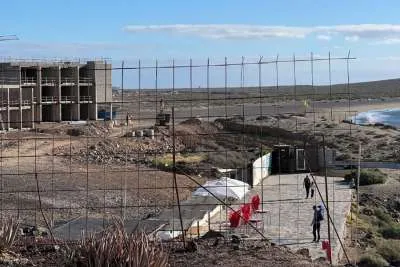Canary Islands Government negotiates with hoteliers to avoid €1 billion in compensation payments
- 24-02-2025
- Business
- Gobierno de Canarias
The Canary Islands Government is engaged in negotiations with hotel industry representatives to prevent a surge of compensation claims that could total up to €1 billion. These claims stem from the second tourism moratorium, which was in effect from 2009 to 2013.
This measure, aimed at regulating land development, was later followed by a third moratorium, which remains in force today.
Origins of the Compensation Claims
The issue dates back to the enactment of the Urgent Territorial Planning Measures Law, which gave owners of urban land designated for tourism one year to request its reclassification to rural land in exchange for compensation. Those who failed to apply were required to keep their building projects on hold for at least five years.
The response from landowners exceeded the expectations of the regional administration, with 36 applications submitted for land reclassification. However, despite following the required procedures, the local councils did not carry out the reclassifications, nor did the Canary Islands Government calculate and pay the legally mandated compensation.
Faced with administrative inaction, the 36 affected parties took their cases to court, where they obtained favourable rulings. The financial impact of these decisions could reach €1 billion, creating a significant financial burden for the public coffers.
Government Seeks Settlement with Hoteliers
To avoid paying the full amount of compensation, the regional government is now negotiating a settlement with the affected business owners. At the same time, it has already taken steps to reclassify the disputed land by publishing Environmental Assessment Agreements in the Boletín Oficial de Canarias (BOC).
The outcome of these negotiations will be crucial for both public finances and the tourism sector, as the Canary Islands continue to navigate the complexities of urban planning and environmental conservation while balancing economic interests.



























































